Council Responsibilities
The Council’s responsibilities are set forth in both federal and state law. Under the federal Developmental Disabilities Assistance and Bill of Rights Act, the Council and all the programs, activities and projects it funds, including the Community Program Development Grants and local Regional Offices on Developmental Disabilities, must adhere to the following principles (as amended in the Developmental Disabilities Assistance and Bill of Rights Act of 2000):
- Individuals with developmental disabilities, including those with the most severe developmental disabilities, are capable of self-determination, independence, productivity, and integration and inclusion in all facets of community life, but often require the provision of community services, individualized supports and other assistance;
- Individuals with developmental disabilities and their families have competencies, capabilities and personal goals that should be recognized, supported and encouraged, and any assistance to such individuals should be provided in an individualized manner, consistent with the unique strengths, resources, priorities, concerns, abilities, and capabilities of such individuals;
- Individuals with developmental disabilities and their families are the primary decisionmakers regarding the services and supports such individuals and their families receive, including regarding choosing where the individuals live from available options, and play decision making roles in the policies and programs that affect the lives of such individuals and their families;
- Services, supports and other assistance should be provided in a manner that demonstrates respect for individual dignity, personal preferences, and cultural differences;
- Specific efforts must be made to ensure that individuals from racial and ethnic minority backgrounds and their families enjoy increased and meaningful opportunities to access and use community services, individualized supports, and other forms of assistance available to other individuals with developmental disabilities and their families;
- Recruitment efforts in disciplines related to developmental disabilities relating to pre-service training, community training, practice, administration, and policy making must focus on bringing larger numbers of racial and ethnic minorities into the disciplines in order to provide appropriate skills, knowledge, role models, and sufficient personnel to address the growing needs of an increasingly diverse population;
- With education and support, communities can be accessible to and responsive to the needs of individuals with developmental disabilities and their families and are enriched by full and active participation in community activities, and contributions, by individuals with developmental disabilities and their families;
- Individuals with developmental disabilities have access to opportunities and the necessary support to be included in community life, have interdependent relationships, live in homes and communities, and make contributions to their families, communities, State, and the Nation.
- Efforts undertaken to maintain or expand community-based living options for individuals with developmental disabilities should be monitored in order to determine and report to appropriate individuals and entities the extent of access by individuals with developmental disabilities to those options and the extent of compliance by entities providing those options with quality assurance standards;
- Families of children with developmental disabilities need to have access to and use of safe and appropriate child care and before-school and after-school programs, in the most integrated settings, in order to enrich the participation of the children in community life;
- Individuals with developmental disabilities need to have access to and use of public transportation, in order to be independent and directly contribute to and participate in all facets of community life; and
- Individuals with developmental disabilities need to have access to and use of recreational, leisure, and social opportunities in the most integrated settings, in order to enrich their participation in community life.
The federal law also allows additional requirements to be placed on Council funding to accomplish the mandates of the federal Act. These are accomplished through program instructions, information, or memoranda issued by the Administration on Developmental Disabilities. Councils must also follow specific procedures to receive federal funding, and must attest to certain assurances regarding how the money is spent. The Council’s state-mandated functions are defined in California Welfare & Institutions Code (WIC) Sections 4540. The majority of the state statutes that govern services for individuals with developmental disabilities are found in WIC Sections known collectively as the Lanterman Act. For a complete list of governing statutes and regulations concerning services to individuals with developmental disabilities, visit the Department of Developmental Services web page entitled Laws and Regulations.
You can review the Councilmember Administrative Policies and Procedures here.
The Governor appoints the Council’s 31 members. Some are appointed because they are self or family advocates, some by virtue of their position in state government, and some as representatives of other organizations involved in the developmental disability services system. Under federal law, self-advocate and family advocate representatives must comprise at least 60 percent of the Council membership.
The self-advocate and family advocate Council members include:
Eric Aguilar - Self-Advocate, San Benardino Region Representative (Inyo, Mono, Riverside, San Bernardino)
Eric Aguilar has been a Member, Instructor, and Program Manager at the Redlands Community Emergency Response Team since 2013. He was a Citizen Volunteer Patrol for Redlands Police Department from 2010 to 2025. Aguilar is a Flotilla Staff Officer Member Trainer for the United States Coast Auxiliary.
Harold Ashe - Family Advocate, At Large Representative
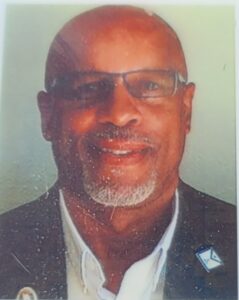
Ashe has been an In-Home Provider since 2016, providing care to his 11-year-old son with Down Syndrome and his 8-year-old son with Autism. He was a Correctional Officer at San Quentin State Prison from 1990 to 2001. Ashe is a Foundation Board Member for UCP.
Sascha Bittner, Self-Advocate, At Large Member
Sascha Bittner was Program Coordinator at Keys to Introducing Disability in Society (KIDS) Project from 1994 to 2007. She is a Commissioner on the Disability and Aging Services Commission, San Francisco, and Member of the National Council of Disability, In Home Support Services (IHSS) Public Authority Governing Board, San Francisco, Golden Gate Regional Center Self-Determination Local Advisory, Master Plan on Developmental Disabilities Committee, and National Steering Committee of Hand in Hand.
Jessica Brown, Family Advocate, San Diego Imperial Region (San Diego, Imperial)
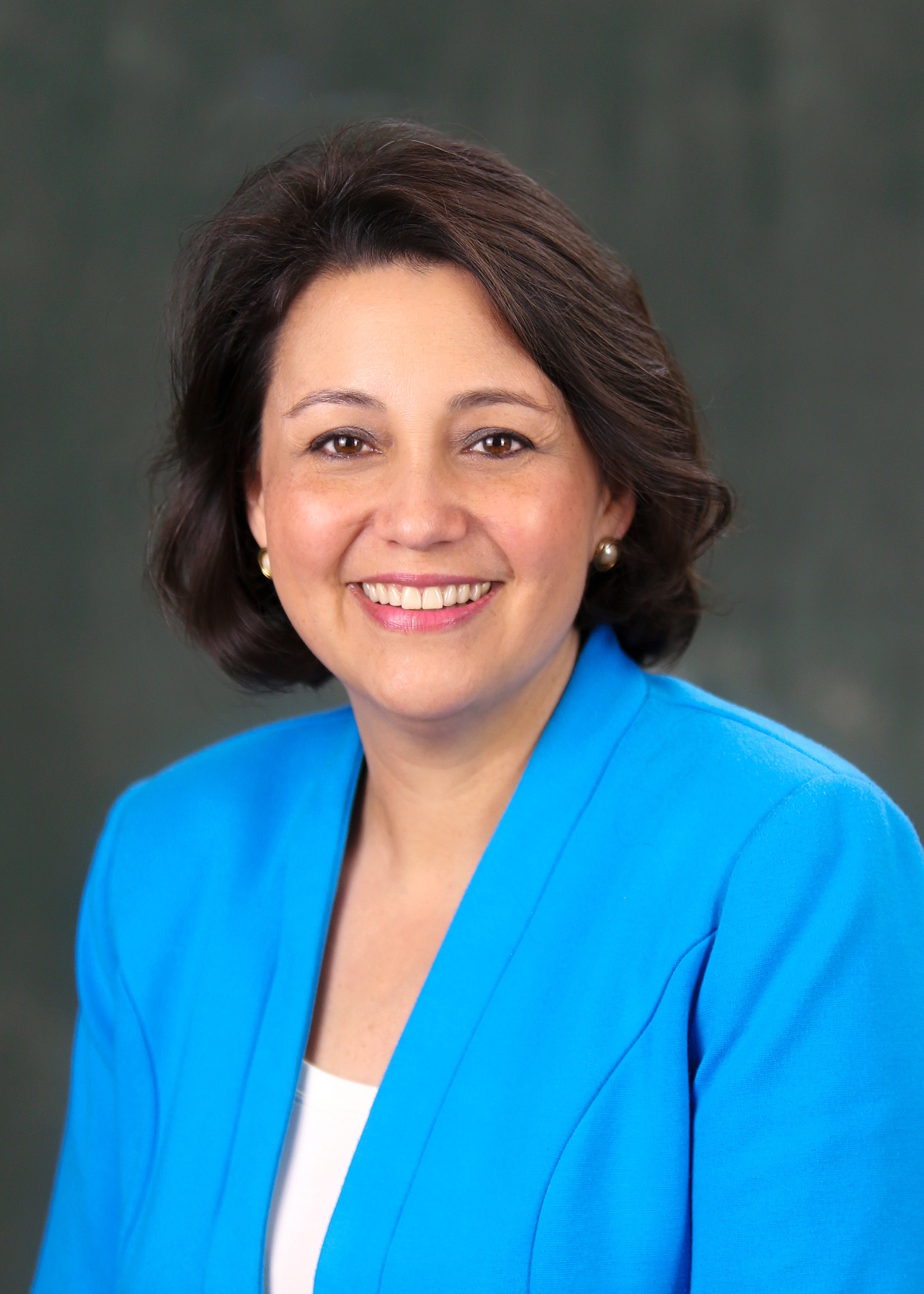
Jessica Brown (Poway) has been a Disability Integration Associate Volunteer for American Red Cross since 2021. She was a Personal Caregiver from 2018 to 2021. She held several positions at Eanes-Westlake Innovative District from 2002 to 2018, including Principal, Assistant Principal, Special Education Teacher and 3rd Grade Teacher. Brown earned a Master of Arts degree in Educational Administration from Concordia University and a Bachelor of Science degree in Organizational Behavior from the University of San Francisco. Brown was a member of the Society for Human Resource Management.
Melissa Fitch - Family Advocate, Central Coast Representative; (Santa Clara, Santa Cruz, San Benito, Monterey, San Luis Obispo, Santa Barbara, and Ventura Counties)
Melissa Fitch has been an Instructor at the Arc of California since 2025, Creator and Host of the “Raising Ryan” podcast since 2024, and Owner at Fitch Marketing & Design since 2001. She was Marketing and Development Manager at Alpha Resource Center from 2016 to 2017. Fitch was Marketing and Outside Sales Representative at Graphic Ink from 2014 to 2017. She was a Development Associate for the Special Olympics in the Santa Barbara Region from 2012 to 2013. Fitch is President and Founding Member of the Down Syndrome Association of Santa Barbara County and Member of Tri-Counties Regional Center Self Determination Advisory Committee, State Council on Developmental Disabilities Central Coast Regional Advisory Committee, and Inclusive College Alliance.
Harold Fujita - Family Advocate, Institution Representative

Fujita has been Human Resources Director for the City of Los Angeles Department of Recreation and Parks since 2000. He was Director of Human Resources for the City of Los Angeles Information Technology Agency from 1996 to 2000. He was the Chair of the SCDD Los Angeles Regional Advisory Committee.
Julie Gaona - Self-Advocate, At-Large Representative
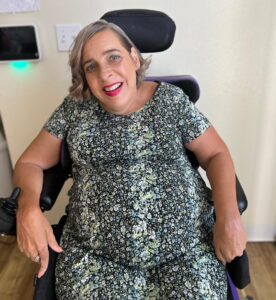
Julie Gaona was an Advocate at the Community Access Center from 2001 to 2010. She is a member of the State Council on Developmental Disabilities, Los Angeles Regional Office Regional Advisory Committee; the Statewide Self-Advocacy Network; the University of Southern California Center for Excellence in Developmental Disabilities Community Advisory Committee; and Communities Actively Living Independent and Free. Gaona is Secretary of the Self-Advocacy Board of Los Angeles.
Azucena Garcia-Ferro - Self Advocate, At-Large Representative
Azucena Garcia-Ferro has been Senior Strategist for Worker Advocacy and Legal Partnerships at Worksafe since 2025, and Creator and Host of Parálisis Cerebral Respuestas Podcast since 2023. She was Project Coordinator at The Arc of California from 2024 to 2025. Garcia was Communications Coordinator at SEIU California State Council from 2021 to 2023. She was Communications Specialist at The Center for Policy Initiatives from 2020 to 2021. Garcia is a Member of the American Academy for Cerebral Palsy and Developmental Medicine and California Policy Center for Intellectual and Developmental Disabilities.
Sonia Jones - Self-Advocate, North Bay Region Representative (Napa, Solano, and Sonoma Counties)

Sonia Jones was a Janitor with Solano Diversified Services from 1995 to 2003. She has participated in volunteering and educational opportunities through Tailored Day Service at The Arc-Solano since 2015. Jones previously served on the Self-Determination Advisory Committee for the North Bay Regional Center.
Cathay Liu - Family Advocate, Los Angeles Region Representative

Liu has been Training Coordinator for the Chinese Parents Association for the Disabled since 1990. She is a member of KEEN LA.
Nestor Nieves, Self-Advocate, At Large Member

Nestor Nieves (Pico Rivera) has been Community Outreach Coordinator at Integrated Community Collaborative since 2020. Nieves has also been Operations Staff at Northwestern Mutual since 2016. He earned a Bachelor of Arts degree in Child and Adolescent Development from California State University, Northridge.
Michelle Padilla - Self Advocate, Sacramento Region Representative (Alpine, Colusa, El Dorado, Nevada, Placer, Sacramento, Sutter, Yolo, Yuba, Sierra)
Michelle Padilla has been an Office Technician at the California Department of Conservation since 2021. Michelle hosts a podcast and has been a member of the SCDD Sacramento Regional Advisory Committee.
Kara Ponton - Self-Advocate, North Coast Region Representative (Del Norte, Humboldt, Lake, Mendocino)
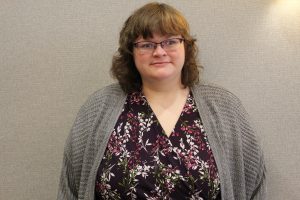
Kara Ponton served on the Department of Developmental Services Consumer Advisory Committee from 2013 to 2019. She is the vice chairperson of the Redwood Coast Regional Center Self-Determination Local Advisory Committee and is a former member of the SCDD North Coast Regional Advisory Committee.
Kara loves reading about U.S. history and her family history. She also enjoys listening to music including songs from her favorite band, The Fray and hanging out with her parakeets and her sisters. Both the first and second Angry Birds movies are her favorite movies, and her special talent is that she can name every United States president!
Lupe Rodriguez - Family-Advocate, Orange County Representative

Lupe Rodriguez has been Associate Director of Career Technical Education at Elite Academic Academy since 2023, and a Career Technical Education 101 Teacher Preparation Instructor for the Orange County Department of Education since 2021. She was a Health Science and Medical Technology Industry Sector Mentor for the Colton-Redlands-Yucaipa Regional Occupational Program from 2023 to 2024. She held several positions at the North Orange County Regional Occupational Program from 2003 to 2023, including Patient Care Pathway Instructor, Instructional Programs Manager, Teacher on Special Assignment and Patient Care Pathway Instructor.
Rosanna "Rosie" Ryan - Self-Advocate, North State Region Representative (Butte, Glenn, Lassen, Plumas, Modoc, Shasta, Siskiyou, Tehama, Trinity)
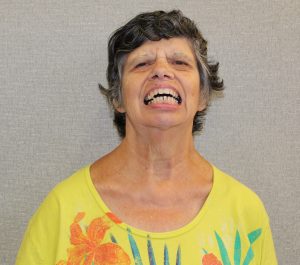
Rosanna “Rosie” Ryan was a peer instructor at the We Care A Lot Foundation from 2010 to 2016. Rosie like to keep in touch with family and friends on the Internet. Rosie enjoys watching movies during her free time, and she loves cats especially her cat, Queen Meeka.
Robert "Bob" Twomey - Family Advocate, Bay Area Region Representative (Alameda, Contra Costa, Marin, San Francisco, San Mateo)
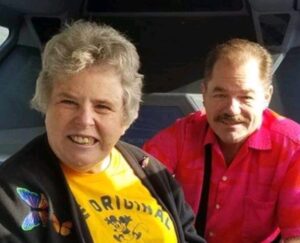
Robert Twomey has been a Field Investigator at the Contractors State License Board since 2014. He was Executive Director at PaceCoreCA from 2013 to 2014. Twomey was Chief of Staff to Assemblymember Fiona Ma in the California State Assembly from 2010 to 2013, where he was Principal Assistant from 2007 to 2013. He was Executive Director of Tile Industry Response Fund Labor-Management Committee from 2004 to 2006. Twomey was Deputy Labor Commissioner at the Division of Labor Standards Enforcement Public Works Unit at the California Department of Industrial Relations from 2000 to 2004. He was Special Assistant to the Director at the California Department of Industrial Relations from 2003 to 2004. Twomey was a Prevailing Wage Analyst at the San Francisco Airport Commission from 1996 to 2000. He earned a Bachelor of Arts degree in Political Economies of Labor at The AFL-CIO’s National Labor College.
Bob’s elder sister Liz receives regional center services and enjoys spending time with Bob’s family, including her three adult nieces, a nephew, and six grand-nieces and nephews.
Irene Valdez - Family Advocate, North Valley Hills Representative (Amador, Calaveras, San Joaquin, Tuolumne, and Stanislaus Counties)

Irene Valdez has been an Educational Consultant at the Consortium on Reading Excellence since 2022. She was an Instructional Coach and Teacher at Stockton Unified School District from 2012 to 2021. Valdez earned a Master of Education degree from Benedictine University and a Bachelor of Science degree in Design from University of California, Davis.
In addition to the self-advocates and family advocate members, 11 Councilmembers are appointed because of their position in state government or because of their role with a specified organization. They are:
Michelle Baass , Department of Health Care Services
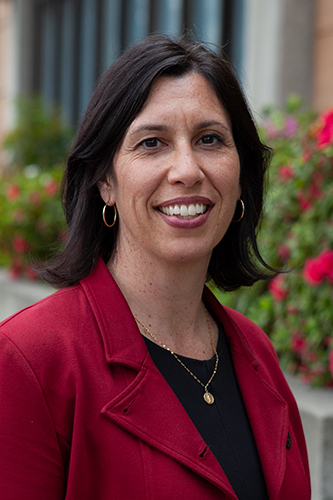
Michelle Baass was appointed Director of the California Department of Health Care Services (DHCS) by Governor Gavin Newsom on September 10, 2021. DHCS supports the health of about 14 million Californians on Medi-Cal, the state’s Medicaid program. Ms. Baass leads a team of more than 4,000 individuals at DHCS.
Before her appointment to DHCS, Ms. Baass served as Undersecretary of the California Health and Human Services Agency (Agency) since 2018 and Deputy Secretary of the Office of Program and Fiscal Affairs at Agency from 2017 to 2018. Prior to joining Agency, she worked for the California Legislature for 13 years, including in positions at the Senate Committee on Budget and Fiscal Review, Senate Office of Research, and Legislative Analyst’s Office.
Ms. Baass earned a Master’s of Public Policy and Administration degree from California State University, Sacramento, and a Bachelor of Arts degree in Government and German from the University of Notre Dame.
Pete Cervinka, California Department of Developmental Services
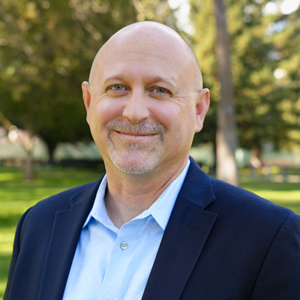
Pete Cervinka has been Acting Director at the Department of Developmental Services since 2024, where he has been Chief Deputy Director of Data Analytics and Strategy since 2021. He held several roles at the Department of Social Services from 2009 to 2020, including Chief Operating Officer, Chief Deputy Director for Benefits and Services and Program Deputy Director for Benefits and Services. Cervinka held multiple roles at the California Health and Human Services Agency from 2007 to 2009, including Assistant Secretary in the Office of Program and Fiscal Affairs and Assistant Associate Secretary in the Office of Legislation. He held multiple roles at the California Department of Finance from 1998 to 2000 and 2002 to 2007, including Assistant Program Budget Manager, Principal Program Budget Manager and Finance Budget Analyst. Cervinka was a Staff Services Manager at the State Water Resources Control Board from 2000 to 2002. He earned a Master of Science degree in agricultural and resource economics from the University of California, Davis.
Susan DeMarois, Department of Aging
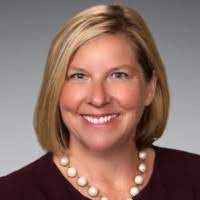
DeMarois was appointed by Governor Gavin Newsom to serve as Director of the California Department of Aging effective November 1, 2021. As Director, Ms. DeMarois is committed to stakeholder engagement; equity and inclusion; and system transformation to prepare our state for the year 2030 when one in four Californians will be aged 60 or older.
Prior to joining CDA, Director DeMarois led public policy and advocacy for the national Alzheimer’s Association in California, serving as the nonprofit organization’s registered lobbyist in Sacramento where she advocated for legislative, budget, and regulatory changes at the state capitol. The organization led the effort to enact the first dementia early detection initiative in the nation focused on the Medicaid population: SB 48 (Limón) signed into law by Governor Newsom.
Ms. DeMarois served as an appointee to Governor Newsom’s Alzheimer’s Prevention and Preparedness Task Force, chaired by former First Lady Maria Shriver, in addition to the Master Plan for Aging Stakeholder Advisory Committee, a workgroup established by Executive Order. In addition, she represented the Alzheimer’s Association on the CalHHS Agency Secretary’s Alzheimer’s Disease and Related Disorders Advisory Committee.
Before working for the Alzheimer’s Association, Ms. DeMarois led government and community relations for the UC Davis Health System where she gained deep health policy and clinical workforce experience. Early in her career, she worked for LeadingAge California, the professional trade association representing not-for-profit housing, residential care and skilled nursing providers.
A graduate of CSU Chico, Director DeMarois started her career working for the U.S. Congress a nd California State Assembly. She is a proud mom to two adult daughters, and draws inspiration for her work from her own mom’s experience with dementia.
Mark Ghaly, M.D., Secretary, California Health and Human Services Agency

Dr. Mark Ghaly, of South Pasadena, has served as director of health and social impact for Los Angeles County since 2018. As both a physician and an expert in public health, Ghaly brings a deep knowledge and understanding of how individual and community health outcomes intersect with policy and law on issues like whole-person care, mental health and stage of life care.
Mark earned a Doctor of Medicine degree from Harvard Medical School and a Master of Public Health degree in health policy from the Harvard School of Public Health.
Andy Imparato, Disability Rights California

Andy Imparato became executive director of Disability Rights California in February 2020. He brings decades of policy and advocacy experience from Washington D.C. to the Golden State.
Prior to starting his current role, Andy shared his expertise with national organizations such as the Association of University Centers on Disabilities and the American Association of People with Disabilities (AAPD). He was the Senior Counsel and Disability Policy Director for Chairman Tom Harkin on the U.S. Senate Committee on Health, Education, Labor and Pensions. In addition, he served as President and CEO of the American Association of People with Disabilities, as General Counsel and Director of Policy for the National Council on Disability, and as an attorney at the US Equal Employment Opportunity Commission.
Andy is a native Californian who grew up in Los Angeles and is married with two children. He graduated with distinction from Stanford Law School in 1990 and was a summa cum laude graduate of Yale College.
Elizabeth Laugeson, Ph.D, UCLA Tarjan Center

Dr. Elizabeth Laugeson is an Associate Clinical Professor in the Department of Psychiatry and Biobehavioral Sciences at the UCLA Semel Institute for Neuroscience and Human Behavior and is a licensed clinical psychologist. Dr. Laugeson is the Founder and Director of the UCLA PEERS Clinic, which is an outpatient program providing evidence-based social skills training for individuals with neurodevelopmental disabilities and other social challenges across the lifespan. Dr. Laugeson is also the Interim Director for the UCLA Tarjan Center, which is a University Center for Excellence in Developmental Disabilities, Program Director for the Autism and Neurodevelopmental Disabilities Internship Program at UCLA, and Program Director for Dissemination, Outreach, and Education at the prestigious UCLA Autism Center of Excellence. Dedicated to supporting those with neurodevelopmental disabilities and their families, she has also held positions as Founding Director of The Help Group – UCLA Autism Research Alliance (2007 – 2017), Training Director for the UCLA Tarjan Center (2014 – 2021), Director of the UCLA Early Childhood Clubhouse Program (2007 – 2010), and Associate Director for the UCLA Parenting and Children’s Friendship Training Program (2007 – 2010).
Dr. Laugeson received her doctorate in clinical psychology from Pepperdine University and completed her pre-doctoral psychology internship in developmental disabilities at the UCLA Neuropsychiatric Institute. She was a two-time recipient of the Ruth L. Kirschstein National Research Service Award from the National Institutes of Health in 2004 and 2006, the recipient of the Semel Scholar Award for Junior Faculty Career Development in 2008 and received the Distinguished Alumnus Award from Pepperdine University in 2010. Dr. Laugeson has been a principal investigator and collaborator on a number of nationally funded studies investigating social skills training for youth with social difficulties from preschool to early adulthood and has authored four books related to social skills including the critically acclaimed, The Science of Making Friends.
As the developer of PEERS, Dr. Laugeson has trained tens of thousands of mental health professionals, educators, and families worldwide, and is dedicated to developing, testing, and disseminating evidence-based treatments to improve social skills for those with neurodevelopmental disabilities across the lifespan and across the globe. As one of the only empirically supported and internationally recognized social skills programs for autistic youth, her programs are currently used in over 125 countries and have been translated into over a dozen languages. Her work has been featured is numerous media outlets, including People Magazine, USA Today, the Washington Post, LA Times, New York Times, ABC, NBC, CBS, Fox, and the Netflix series, Love on the Spectrum.
Kim Levy Rothschild, Non-Governmental Representative
Kim Levy Rothschild has been Executive Director at California Association of Public Authorities for IHSS since 2022. She was Senior Director at Shaw Yoder Antwih Schmelzer & Lange from 2010 to 2021. Rothschild was Government Affairs Officer at San Mateo County Transit District from 2009 to 2010. She was a Sales Consultant at Novartis Pharmaceuticals from 2005 to 2009. Rothschild was an Area Director at American Israel Public Affairs Committee from 2003 to 2005. She was Chief of Staff and Legislative Director at the California State Assembly from 1996 to 2002. Rothschild is a member of the American Society for Association Executives. Kim is appointed to the non-government agency seat.
Aubyn Stahmer, Ph.D., University Center for Excellence (University of California, Davis)

Dr. Aubyn Stahmer is the Director of the Center for Excellence in Developmental Disabilities at the UC Davis MIND Institute and a clinical psychologist and professor in the Department of Psychiatry and Behavioral Sciences. She studies ways to help community schools and organizations use research informed interventions for children with autism and other developmental disabilities and their families.
Before coming to Sacramento, she worked at Rady Children’s Hospital in San Diego where she established an inclusive toddler and preschool program.
Aubyn grew up in Ohio and San Diego. She loves riding her bike, hiking and skiing, especially in Lake Tahoe.
Tony Thurmond, Superintendent of Public Instruction
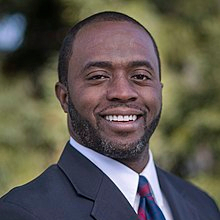
Superintendent Tony Thurmond is an educator, social worker, and public school parent, who has served the people of California for more than ten years in elected office.
Tony’s family relied on public assistance programs and great public schools to get out of poverty. He attended Temple University, where he became study body president. He went on to earn dual master’s degrees in Law and Social Policy and Social Work (MSW) from Bryn Mawr College and began a career dedicated to service.
Tony now lives in Richmond with his two daughters who attend local public schools. They are his inspiration and a constant reminder about the promise of our neighborhood schools and the strong future that every child deserves.
Kim Rutledge, Department of Rehabilitation

Kimberly Rutledge, of Sacramento, has been appointed Director of the Department of Rehabilitation, where she has been Deputy Director of Legislation and Communications since 2022. She held several positions at the California Department of Social Services from 2016 to 2022, including Chief of the Adult Programs Policy and Quality Assurance Branch and Adult Protective Services Program Liaison. Rutledge held several positions at United Domestic Workers of America, AFSCME Local 3930 between 2012 and 2016, including Budget and Policy Analyst and Assistant Legislative Director. She was an Independent Policy Consultant at the County Welfare Directors Association of California from 2011 to 2012. Rutledge was a Sweeney Graduate Intern on Disability Policy at the National Academy of Social Insurance in 2011. She was a Graduate Policy Intern at the Disability Community Resource Center from 2010 to 2011. Rutledge was a News Copy Editor at the Sacramento Bee from 2005 to 2009. She is a member of the National Academy of Social Insurance.
Larry Yin, M.D., University Center for Excellence (University of Southern California)

Dr. Larry Yin is a clinician practicing both Developmental-Behavioral and General Pediatrics. Currently, he is an Associate Professor of Clinical Pediatrics at the Keck School of Medicine of the University of Southern California. He also holds the academic position of Associate Professor of Occupational Science and Occupational Therapy at USC. He is the Medical Director of the Boone Fetter Clinic at Children’s Hospital Los Angeles (an Autism Speaks Autism Treatment Network site) and the Director of the USC University Center of Excellence in Developmental Disabilities.
For over 15 years, Larry has been the Medical Consultant to the San Gabriel/Pomona Regional Center, and he has over 20 years providing care for children with neurodevelopmental disorders and special health care needs.
